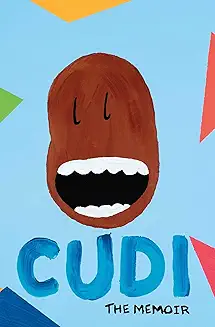In Cudi: The Memoir, Kid Cudi delivers a raw and fearless account of a life lived at the intersection of fame, vulnerability, and survival. The book traces his journey from childhood in Cleveland through his ascent in music and his relentless personal battles. From the outset, the narrative feels like a direct message from a long-lost friend, intimate and open, as Cudi lays bare the darkness that shaped him and the artistry that emerged from it.
The memoir spans a wide emotional terrain, starting with early memories of loss. At just eleven years old, he lost his father to cancer—a moment that reverberates throughout the pages, shaping his sense of identity and fueling the exploration of grief that permeates his music. Years later, after moving to New York and finding success, the glare of fame arrived suddenly and unannounced. Kid Cudi’s recounting of that time is brutally honest: the overwhelm of attention paired with a fragile sense of self, and the insidious slip into substance dependency. He confesses that cocaine, for a period, served as his coping mechanism to counter suicidal impulses, describing it as a lesser evil that kept him from ending his life.
One of the most striking moments in the book revolves around an episode in rehab when he suffered a stroke—an event he initially did not recognize. The physical fragility he experienced, even at a relatively young age, became a stark reminder of his mortality. The realization that continued cocaine use could cost him his life led to a turning point in his recovery. In that moment of confrontation with death, he dedicated himself to recovery and healing, both for himself and for his young daughter.
Throughout the memoir, themes of depression, isolation, addiction, and self-doubt intertwine with glimpses of profound reinvention. Cudi reflects on moments when his debut and mainstream attention felt hollow rather than hopeful, and he recounts a sense of “running to the grave,” despite outward success. Yet, in revisiting these experiences, he finds redemption—not in grand declarations, but in small awakenings: being present for his child, seeking help, and writing in his own words.
The writing style is direct and conversational, eschewing artifice. You can almost hear his voice in every line—guarded yet inviting. His reflections on therapy, crying under pressure, and learning to say “I’m not okay” feel genuine and lived-in. He doesn’t position himself as a hero—just a human who has endured, faltered, and found his way back.
Emotional honesty is the strongest thread here. Whether he is recalling early heartbreaks, the impact of sudden fame, or the haunting temptation of relapse, Cudi writes with clarity and humility. His examination of addiction is neither glamorized nor oversimplified; instead, it is complex—nuanced and empathetic. He writes about wanting to fall apart—and almost doing so—but choosing life instead.
Amid the darkness, there are moments of hope and transformation: a sense of newfound stability, budding creativity, and a later phase of artistic and personal fulfillment. As he writes toward the present—now that he’s approaching forty—there’s a quiet pride in having endured, in having said what needed to be said, and in inviting readers into that confession.
Cudi: The Memoir is as much about vulnerability as it is about artistry. It underscores how Kid Cudi’s music has always been shaped by personal truths, and how that truth continues to evolve. For fans, the book offers a fuller picture of the man behind the albums and the hoodie. For anyone navigating their own darkness, it offers a bravely open companion.
Ultimately, this memoir is not just an account of survival. It is an argument for the power of reinvention, and a testament to the courage it takes to keep stepping forward. Kid Cudi’s story is a reminder that healing does not erase scars—it lets them become part of a lived and meaningful whole.




